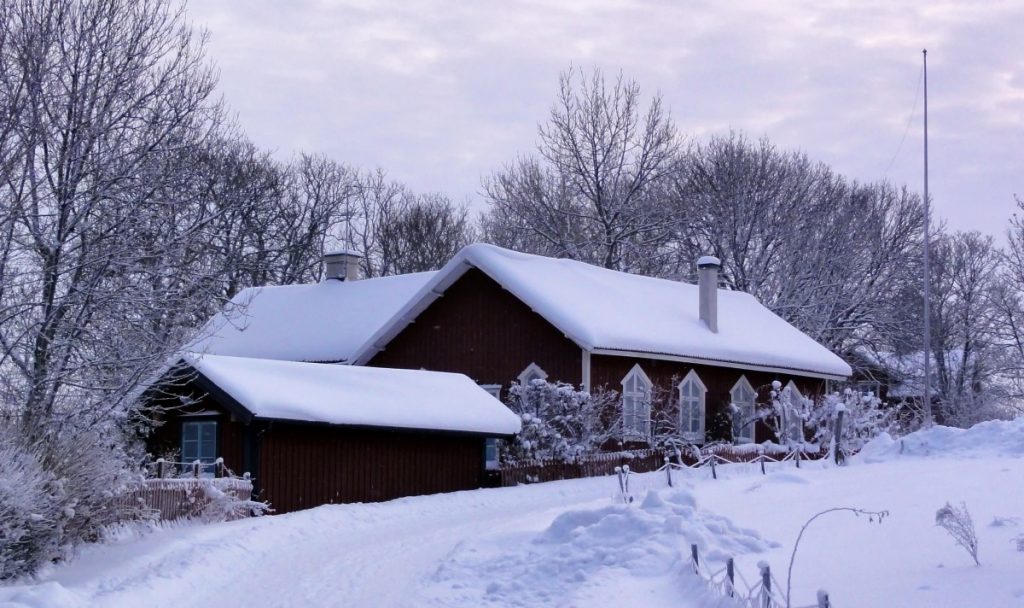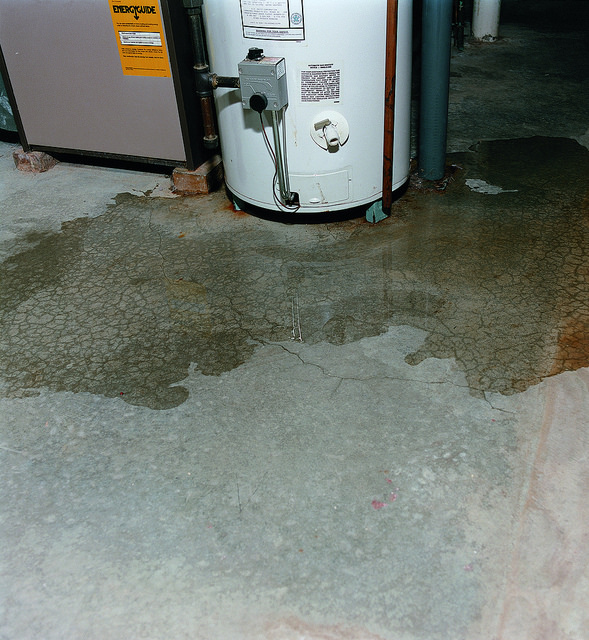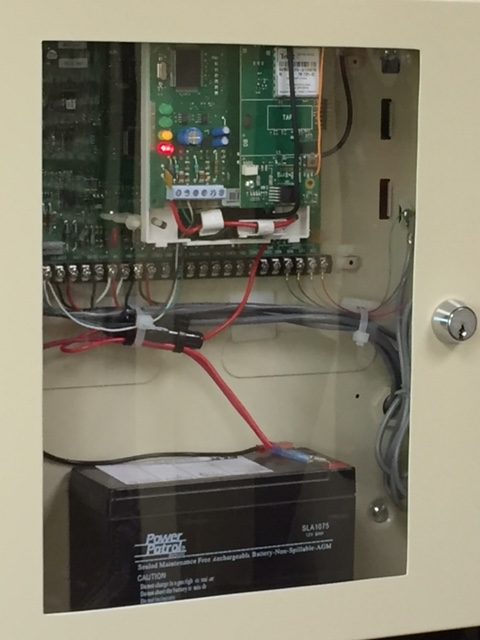At the beginning of autumn we shared a seasonal post with some of our most Important Autumn Security Tips. This post focused largely on the change of scenery that comes with the fall. Longer nights, the falling of leaves, and watching out for Halloween pranks all deserve special attention. In this post, we focus not on a change in scenery, but a shift in weather. Over the next few weeks, seasonally “brisk” weather will turn into frigid cold weather more and more often. This creates specific risks that you must address in order to increase cold weather security for your family and your home.
We’ll begin this post by addressing weather-related events that hit the hardest. Fires, floods, and frozen pipes can threaten your family’s safety and wreak havoc on your home. We’ll also examine how winter weather can affect your security equipment. Taking steps to keep your burglar alarm, cameras, or other security-related electronics up and running is a key component of any cold weather security plan. Let’s start by focusing on how you can avoid heater-related fires in the midst of cold weather.

When the weather makes you want to duck inside for cover and warmth, stay vigilant about the methods you use to heat your house to avoid the risk of a fire.
Stay Smart with Your Plans for Keeping the House Warm
We discussed cooking-related fires in last week’s Thanksgiving Security Tips. Of course, Thanksgiving — and the holidays in general — provide plenty of opportunities for cooking mishaps. However, fire concerns do not begin and end strictly with oven use. House fires increase dramatically as homeowners begin using their heaters regularly. As cold weather starts moving in, clean and dust your heaters. Ensure that no clothes or drapes are in contact with your heater when you turn the heat on. Taking these simple precautions can greatly reduce the chance of a fire during the coldest months of the year.
Space heaters also deserve special attention. The National Fire Protection Association (NFPA) reports that space heaters cause 43% of all home fires and a staggering 83% of all home heating fatalities. For safe space heater usage, unplug space heaters before leaving the room they are heating. Make sure to turn off all space heaters before going to sleep. Finally, keep space heaters away from combustibles, and plug them into a wall outlet and not an extension cord or cord or power strip. Following these steps can help keep you both safe and warm during frigid weather. Of course, cold weather threatens homes with other disasters as well. Let’s look at how to create notifications for other weather-related dangers.
Install Security Equipment to Detect Weather-Related Disasters

Receiving an alert when your basement starts flooding can help minimize damage and clean-up costs. Photo Credit: State Farm on Flickr. Used under CC BY 2.0.
In addition to fires, other disasters find their way into homes in the winter more often than in other seasons. Cold weather leads to frozen pipes and all of the headaches they can bring. Consider adding security equipment that detects and alerts you to these events. We offer a couple different ways to deal with cold-weather threats. For one, you can install specific weather-related security system contacts, such as freeze and flood sensors. Freeze sensors alert you in the event that the temperature drops dangerously low in a specific area. Putting these sensors in your basement can catch low temperatures caused by frozen pipes before the pipes burst. Flood sensors detect water in the area you install them, and can alert you to a flood caused by melting snow, plumbing leaks, or any other number of weather-related factors.
Installing a smart thermostat and temperature sensors can also help you detect these types of risks early. Smart thermostats, such as our powered by Alarm.com, generate alerts if the temperature goes above or below a specified range. These thermostats also point out potential deficiencies in your HVAC equipment. For example, your thermostat will detect if excessive HVAC run time is required to bring the house to your desired temperature, which could point to required maintenance.
Consider adding temperature sensors in particularly important areas of your home. For example, perhaps you want to know if your basement temperature drops below 45 degrees. Installing a basement temperature sensor allows you this level of control and precision. The difference between knowing when your basement temperature drops, rather than receiving an alert only after the cold temperatures have crept up to the main floor, could be the difference between minimizing any damage versus having a pipe burst in your basement. The ability to receive these important alerts and react to them quickly adds tremendous cold weather security for your home.
Make Plans to Safeguard Security Equipment During a Power Outage
In our Emergency Preparation Tips for Alarm Customers, we discussed the importance of preparing for power outages. Extreme winter weather makes following this tip even more important. Snow storms and high winds create a potent recipe for power outages. We certainly recommend planning for this possibility when creating your own cold weather security plan. If you have a security system, consider purchasing an additional backup battery in case of an extended power outage.
Consider using a UPS, or Uninterruptible Power Supply, to provide backup power to other security-related devices you may have. Many of our surveillance customers, for example, take this precaution. Buying a generator to kick in during a power outage can also help keep your surveillance system up and running throughout any weather-related power failure. Allowing a power outage to disable your security equipment can leave you vulnerable when you need your security equipment the most. Taking steps to solve this issue is a simple way of beefing up your cold weather security.

Home alarm systems utilize backup batteries, such as this model by Power Patrol, to keep systems up and running during a power outage. Keeping an extra battery or two can keep you prepared for extended power outages.
Don’t Let Phone Line Failures Ground Your Security Equipment
In our post on Smart Security System Design, we discussed the process of choosing a monitoring plan for your alarm system. We broke down the differences between phone-line based monitoring versus cellular monitoring. If you monitor your alarm through a cell dialer, regular land line outages will not affect your alarm system. We always recommend this option, as it adds extra security over monitoring your alarm through a landline. Additionally, installing an interactive cellular dialer allows you to install smart home devices such as the smart thermostat mentioned earlier. This becomes especially important in the winter. After all, the same factors that create power outages can also affect telephone poles and phone service. If your phones fail during stormy winter weather, you’ll still want your alarm system to continue communicating with the central station.
Stay Mindful of Surprise Visitors or Solicitors
Our post on Burglars in Disguise examined the many steps burglars take to disguise their intentions. One of these methods involves criminals dressing up as solicitors and knocking on doors. While this may appear counterintuitive, keep in mind that burglars prefer breaking into empty homes. From their perspective, taking one quick step to scout out empty houses makes perfect sense. Cold weather and shorter days also leaves room for riskier behavior than usual. Uncomfortable weather keeps many people off the street, and the earlier nightfall brings additional cover for snooping. Burglars can act much more boldly in these circumstances than they could in broad daylight with neighbors milling about. If you do get a visit from door-to-door solicitors, pay attention to where they go afterwards. If they act suspicious in any manner, contact the authorities.
Putting it All Together to Create a Complete Plan for Cold Weather Security
We hope that this post has given you some ideas for improving your own cold weather security this year. Perhaps you’ve read something here that reminded you of a particular weather-related threat in your own home. Or maybe this post has raised as many questions as it has answered. Either way, we encourage you to contact us. We provide free site surveys, during which we will evaluate your own home’s seasonal security. While at your home, we can address specific concerns that you have, and make recommendations of our own as well. Together, we can create a plan that leaves you as safe and secure as possible as the cold weather rolls in.
